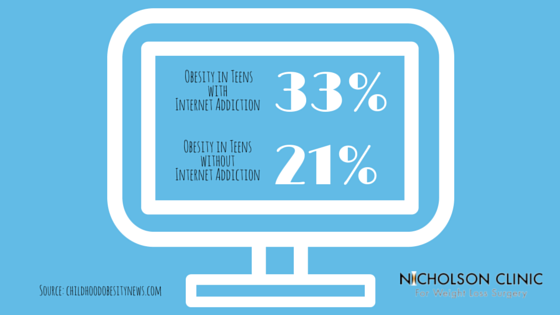
by Victor Sierpina, MD
“To a person who is always busy, life is beyond hope.” – Lao Tsu
If we told you there was a new disease that was shrinking the size of your kids’ brains, increasing their risks of getting in a car accident, and stunting their social skills, you would likely want to know how to treat it.
We are talking about a digital dementia which has become a dangerous experiment in our lives and our children’s health.
A driving force behind social media use is called FOMO which stands for, “Fear Of Missing Out.” If we are not constantly checking our cell phones, tweets, Facebook postings, emails, etc., we are anxious and upset that we may be missing something important.
FOMO levels are very high in younger people, particularly younger men and those with low levels of life satisfaction are more likely to be afflicted.
Dr. Gokhan Sami Kilic a surgeon and researcher at UTMB—Helath showed that teens’ use of on-line game playing increased certain physical, mechanical, and spatial skills important in robotic surgery simulations. Teens that did gaming could perform as well or better as resident surgery physicians on surgery simulation tasks. Great news, right?
Not so fast. While gaming experience improved performance to a point, gaming over an hour a day did not improve their skill level. In fact, brain scans of university students in China who spent between 8-13 hours a day gaming online showed a decrease in the size of their brains, the white matter was actually contracting.
Such activity is a symptom of what has come to be called “internet addiction.” Key questions in this research used three criteria, which if answered in the affirmative raise concern:
- A person feels happier or more self-fulfilled online than in the real world.
- A person feels upset, depressed, or panicked when being cut off from the Internet for any reason.
- A person lies to the family members about how long he spends online.
Here is a detailed list of questions that might help you or your kids get a perspective on your Internet use:
Are You Addicted to the Web?
1. Do you feel absorbed in the Internet (you remember previous online activity or long for the next session)?
2. Do you feel satisfied with Internet use if you increase your amount of time online?
3. Have you failed to control, reduce or give up Internet use repeatedly?
4. Do you feel nervous, temperamental, depressed or sensitive when trying to reduce or give up Internet use?
5. Do you stay online longer than originally intended?
6. Have you taken the risk of losing a significant relationship, job, educational or career opportunity because of the Internet?
7. Have you lied to your family members, therapist or others to hide the truth of your involvement with the Internet?
8. Do you use the Internet as a way of escaping from problems or relieving an anxious mood, e.g. feelings of helplessness, guilt, anxiety or depression?
These questions sound a lot like a confession sharing at an Alcoholics Anonymous or Narcotics Anonymous support group meeting, do they not?
Researchers say you are an Internet addict if your answered ‘yes’ to questions one to five and to at least one of the remaining questions.
OK, so we have identified the disease, now what is the cure? One solution may be mindfulness, moment-to-moment, non-judgmental awareness. This is a spiritual and mental practice that can start small but infuse all areas of your life. Driving more mindfully, reducing multi-tasking, spending time meditating, and eating mindfully are all examples. Don’t text while driving!
Now we could have “Mindful Interneting” or MIT for short. As a parent, monitoring your kids’ use of media and Internet use is now an essential duty and a factor supported by hard science. Letting their brains shrink is not a responsible choice. How about, “Go outside and play,” or “Let’s do something else together.”
Or maybe, like a compulsive gambler, you personally have felt sucked into the maelstrom of overuse of the Internet. Seemed like fun at first, now it has become something else… an addiction. Try some outside social activities, fitness workouts, and mindful reflection time. Such mindfully chosen practices might help break the cycle. There is even an IAA (Internet Addicts Anonymous) to help you. Of course, you can find it on the Web!
As Lao Tsu once said, “To a person who is always busy, life is beyond hope.”












